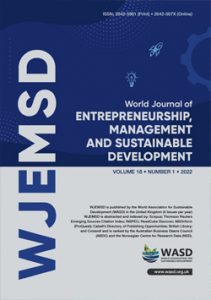An assessment of international liquidity and higher oil prices, Amer Al‐Roubaie
 Amer Al‐Roubaie
Amer Al‐Roubaie
Ahlia University
Bahrain
DOI: 10.1108/20425961201000013
Abstract: Energy represents an important component of production costs and therefore, an increase in energy prices directly impacts economic productivity, unemployment, inflation, and balance of payments equilibrium – often engendering currency devaluations. Until recently, the growth in demand for conventional fuels, mainly oil and gas, has widened imbalances between demand for and supply of energy. The effects of the surge in oil prices ripple across the entire global economy resulting in a redistribution of international liquidity. The latter creates global imbalances characterized by increasing balance of payment deficits and deteriorating the terms of trade, reducing the flow of non‐energy goods and services and increasing uncertainty of future global transactions. The aim of this paper is to shed some light on the impact of higher fuel prices on global liquidity management.
Keywords: Oil revenues; Price volatility; Global liquidity; Balances of payments; Globalization; The Middle East; China; India.
Citation: Al‐Roubaie, A. (2010), "An assessment of international liquidity and higher oil prices", World Journal of Entrepreneurship, Management and Sustainable Development, Vol. 6 No. 3, pp. 161-180. https://doi.org/10.1108/20425961201000013

